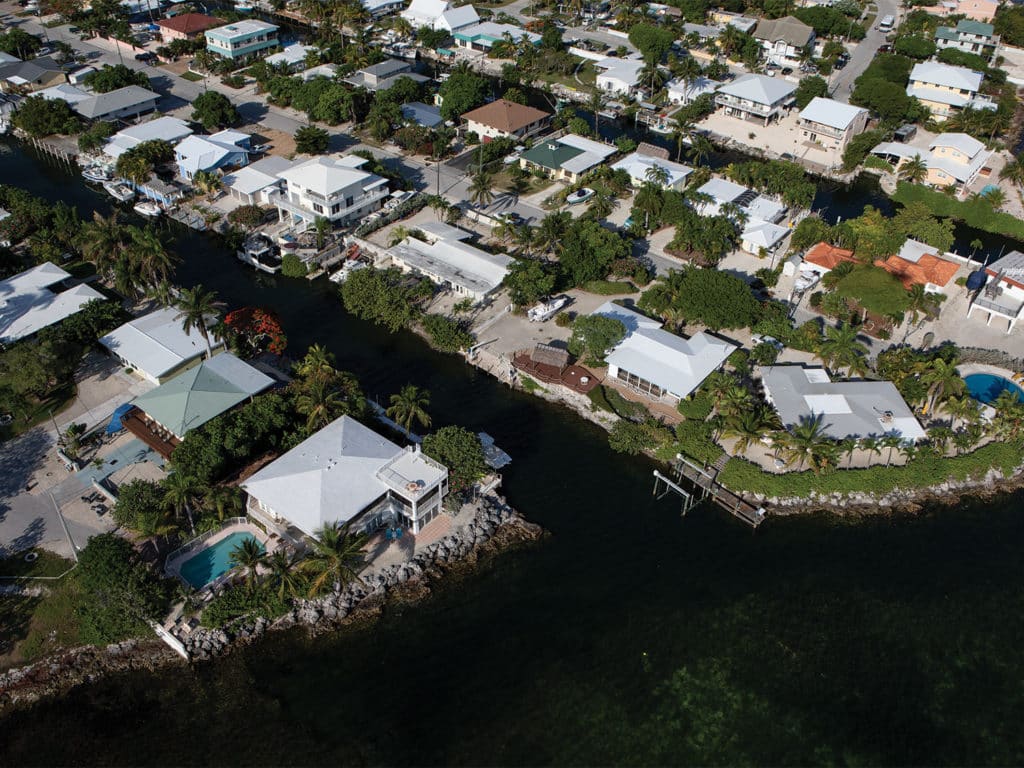
Even though I’m a stock, bond and private-equity person, in my opinion, the best way to start building wealth is in real estate. That doesn’t mean rental apartments or being a landlord; I mean buying your own home and taking advantage of home ownership.
Most full-time fishermen spend their time traveling during the different seasons—from the mid-Atlantic or Northeast in the summer, to Florida, the Bahamas and Central America during the winter—but everyone has a place they call home. Here are just a few of the benefits of owning a home:
- Gaining equity: Buying a home today for one price and having it increase in value over 20 to 30 years is a great way to increase your wealth. Start by identifying a home that has the potential to appreciate over time. According to the Federal Housing Agency, homes appreciated 34.7 percent from 2012 to 2017.
- Taxes: The mortgage interest on your residence is tax-deductible. If you earn $100,000 and your mortgage interest is $9,900, you could be able to deduct the entire amount. In 2019, the tax deductions have become somewhat more stringent, though.
- Establishing roots: Even if you travel extensively, you might have a spouse and kids. Having your kids attend a regular school could benefit them socially.
- Retirement: Wouldn’t it be nice to have your home paid off when you reach retirement age? A mortgage is one of the highest expenses you will ever have, and being mortgage-free in retirement would certainly give you peace of mind.
Let’s look at what is required and set reasonable expectations for purchasing a $250,000 house. First on the list is mortgage rates. This has to be one of the best times to buy a home because we are at historic lows. Some might remember mortgage rates being 18 to 20 percent, but today they are as low as 3.5 percent for a 30-year fixed mortgage. I don’t think we will see rates this low again once they increase. The difference between today’s rate of 4 versus 8 percent would be about $640 a month or $7,680 annually. This is a great opportunity.
Next is private mortgage insurance. Many lenders require borrowers to obtain PMI if they do not put down 20 percent when purchasing homes.
This amount is usually 0.05 to 1 percent. Keep in mind that if you put down 10 percent and the value of your home appreciates another 10 percent, then you can have your home appraised and possibly have the PMI waived, saving you more money on your mortgage payment.
The third consideration is a down payment. Typically, a bank will require a minimum of 5 percent down for a traditional 30-year mortgage, which in our scenario is $12,500. I purchased my first home using an FHA mortgage, which is a mortgage issued by the Federal Housing Administration. I was running a boat and traveling, but didn’t have the 5 percent to put down, and the rent was too expensive. At the time, FHA required only 3 percent down with fewer requirements than a traditional bank. I saved $400 a month by buying rather than renting the same place.
Then there is insurance. I’m writing this as I watch the coverage of Hurricane Dorian—insurance is a must. All homeowners who have mortgages must carry homeowners insurance.
Learn why life insurance is important.
And the final consideration is property taxes. The tax rates vary—I live in Palm Beach County, Florida, and I pay approximately 2 percent. In Worcester County, Maryland, the rate is 0.845 percent. You could also have a state tax that will be required.
Some of you might ask, “Why not just rent?” Renting is a viable option for housing but not for building a nest egg. There are advantages to renting, such as minimal maintenance and repair costs and a short-term commitment—because you can rent month to month or on an annual basis. The biggest disadvantages are not building equity, the loss of tax savings, and not being able to create the home you desire.
I would seriously consider a home purchase if you plan to be in an area for at least five years. It’s a good way to start building equity while also providing a stable environment and a great place to live. We often measure return on our investments in terms of dollars and cents, but owning a home has far more benefits for you and your family.
Monthly Expenses
| Mortgage ($250,000 for 30 years at 4 percent) | $1,194 |
| Home Insurance | $200 |
| Taxes (1 percent of the home’s value) | $209 |
| PMI Insurance (0.75% of $250,000) | $157 |
| Total Estimate | $1,760 |







